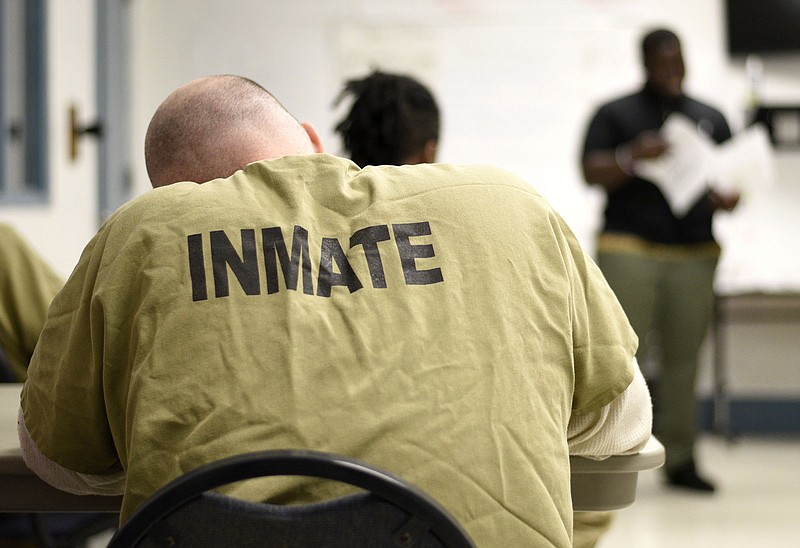Early this year, Tennessee Gov. Bill Lee announced a plan to reform the state's criminal justice and public safety system.
"We must significantly improve public safety in our state and I believe that starts with our criminal justice system," Lee said in a Feb. 28 statement. "We will focus on helping individuals to ensure there is a pathway to a productive life beyond crime and ultimately make our state a safer place."
In short, he proposed investing $10.5 million over three years in education and support for Tennessee criminals offenders.
It was, and is, a tall order in state better known for locking those offenders up and throwing away the key.
Tennessee's prison and jail population has quadrupled over the past 40 years, and the Volunteer State's incarceration rate now stands 10% higher than the national average, according to a new report that the governor commissioned from the nonprofit Community Resources for Justice. And even though the number of prison admissions dropped 14% in the last decade, the average sentences for those prisoners got longer.
If you're wondering what that's costing us, you'd best sit down. The bill for incarcerating just under 29,000 inmates is a whopping $1.6 billion a year.
According to the report, which was released Thursday in the first public meeting of Lee's Tennessee Criminal Justice Reinvestment Task Force, part of what's driving the numbers and the costs aren't people convicted of violent crimes against others. Those behind bars in state prisons or local jails for violent crimes account for just 1 in 4 people. Rather, it's the 33% of inmates sentenced for property crimes such as burglary or larceny or fraud, as well as the 39% of inmates who were rejailed for violating parole or probation, or committing new crimes while on parole or probation.
And the recidivism rate? Nearly half of those released from custody are arrested again within three years.
Lee, a very conservative Republican, hopes to change the trending dynamic - and not by building more jails.
No, he didn't suddenly become a liberal, but he comes at this with some personal experience. During his 2018 campaign for governor, Lee frequently cited his longtime involvement in prison ministries like the faith-based Men of Valor. Lee himself served as a mentor, and he saw first-hand how programs that embraced prisoners' and parolees' mental health, substance abuse, education and jobs access not only bettered their lives but also brought down recidivism rates.
More than 30% of inmates in Tennessee do not have high school diploma or equivalency, Lee said when he unveiled his plan. But it's been shown that inmates given education and vocational training have a 43% lower chance of re-entering prison.
To push this plan, Lee created the task force that will meet for the next two years and bring him recommendations for the upcoming 2020 legislative session.
The task force members include state Rep. Yusuf Hakeem, D-Chattanooga, a former state parole board member; Hamilton County General Sessions Court Judge Alexander McVeagh; and state Senate Judiciary Committee Chairman Mike Bell, R-Riceville.
It was clear from Lee's executive order creating the task force that he's looking for recommendations that help offenders successfully re-enter society. He also wants an outline for how to tackle the politically sensitive issue of sentencing. And he's already successfully pushed and signed a new law that eliminated the state's $180 expungement fee.
In short, Lee wants to lower the barriers that often keep people from succeeding - once they've done their time.
After Thursday's meeting, Hakeem said task force members should follow the Community Resources for Justice's "data" because "history says we need to do something different."
He's right. And so is Gov. Lee on this issue.
It's an admirable, worthy - and conservative - objective.
